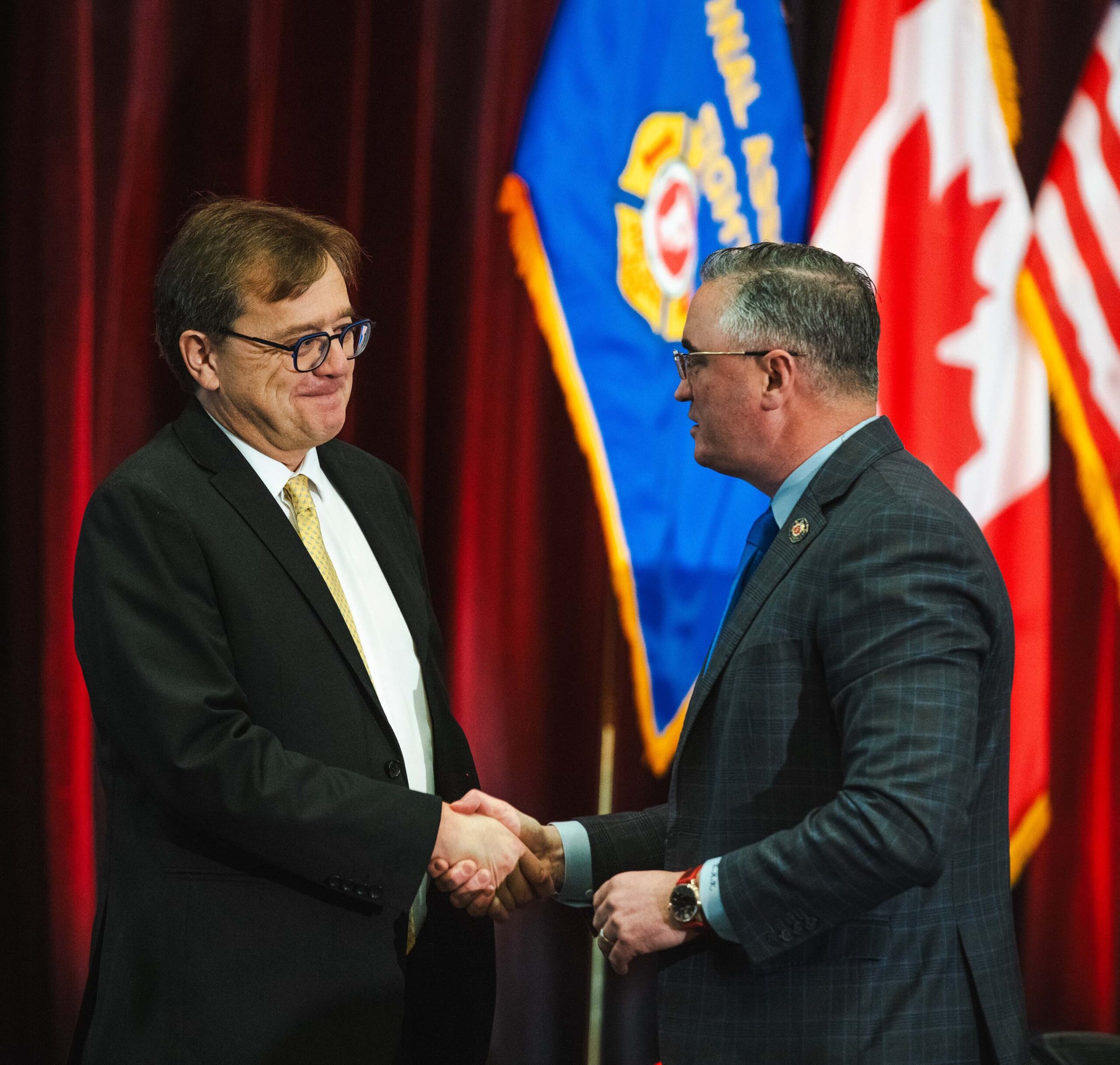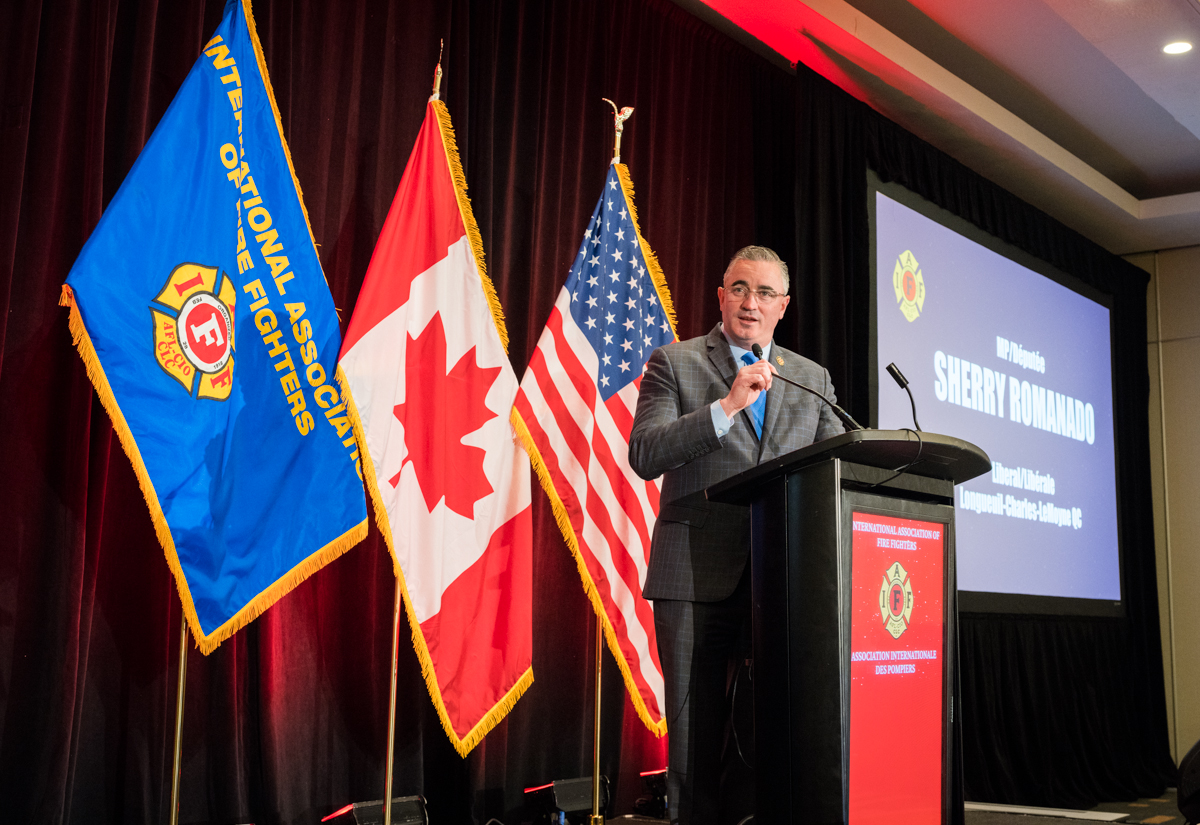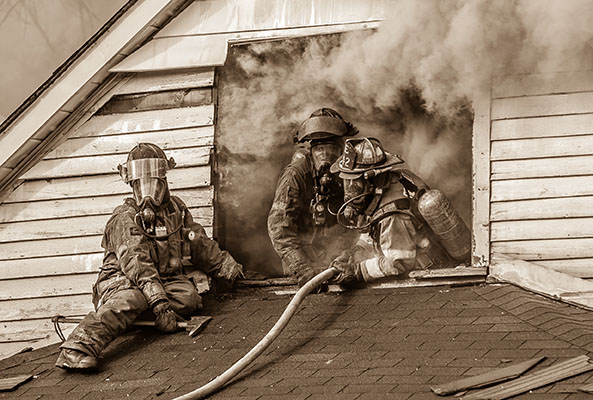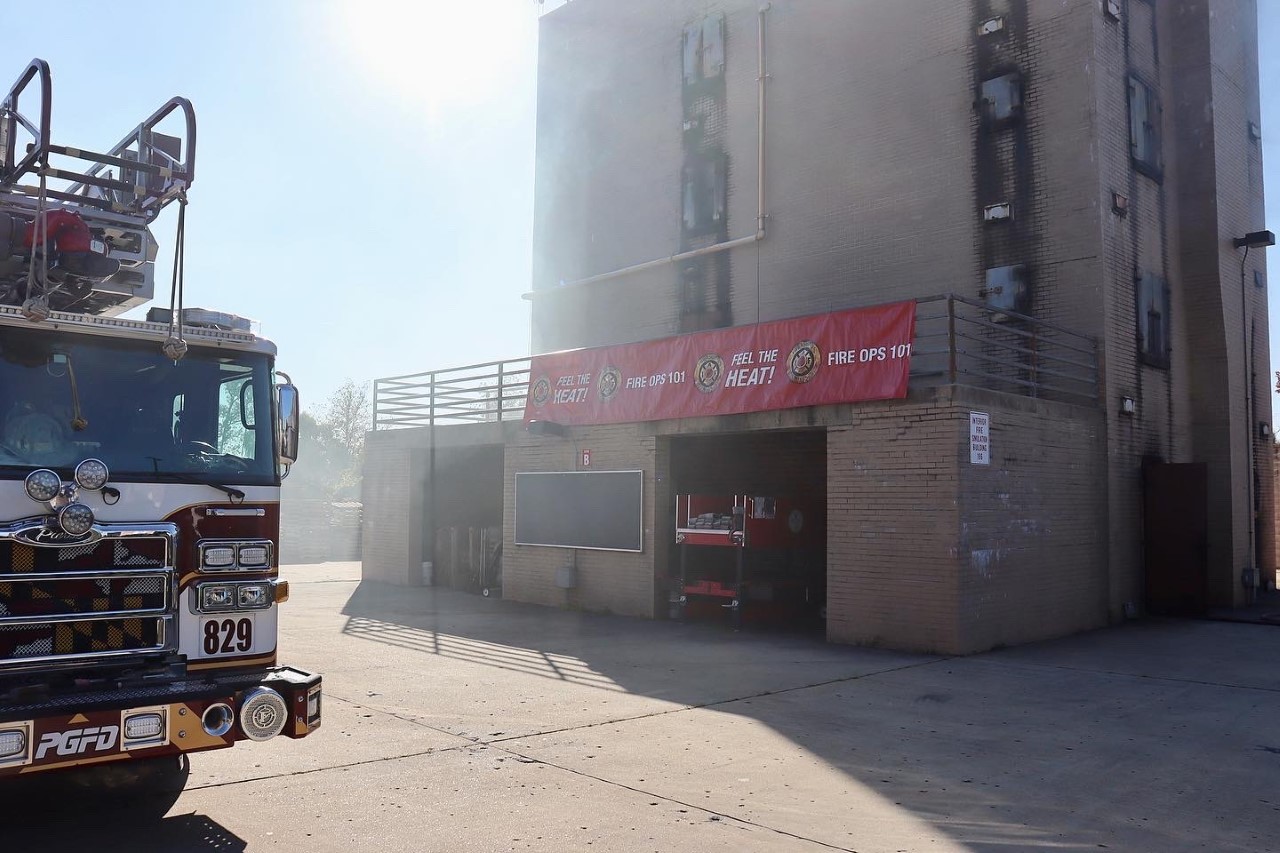 What is it like to be a fire fighter for a day? More than 20 IAFF headquarters staff members and elected officials from Prince George’s County, Maryland found out at the FIRE OPS 101 event held at the Maryland Fire and Rescue Institute in College Park.
What is it like to be a fire fighter for a day? More than 20 IAFF headquarters staff members and elected officials from Prince George’s County, Maryland found out at the FIRE OPS 101 event held at the Maryland Fire and Rescue Institute in College Park.
“The physical and emotional demands of firefighting are something most people never experience. The job is unique and challenging,” said General President Edward Kelly. “Understanding this allows IAFF staff and state and local decision makers to better connect and work with IAFF members. That’s why we have invited all of you to participate in today’s event.”
Cohosting the event with the IAFF was Prince George’s County, MD Local 1619. IAFF 4th District Vice President and Prince George’s County Local 1619 President Andrew Pantelis, the Local 1619 executive board, and Local 1619 members were on site to serve as instructors and answer questions during each planned scenario.
The scenarios included emergency medical response in a COVID-19 environment, live fire and PPE decontamination, a confined space search maze, and car extrication.
Most FIRE OPS 101 events include an emergency medical response scenario. But as a reflection of the new challenges EMS personnel have faced over the last two-and-a-half years, the threat of a COVID-19 exposure was added.
In this scenario, participants are dispatched to a report of a sick person. Once on scene, they discover the patient may be COVID-19 positive. The participants experienced first-hand the challenges emergency medical personal face as they wear extra PPE and take additional precautions to care for a patient.
After the live fire scenario, Executive Secretary for the Governmental, Strategic and Political Initiatives Courteney Wisnewski said, “You feel the impact of the smoke on your respiratory system first. Then you see in real time how fast the fire spreads and how dark it gets once the smoke has filled the building. Putting out a fire is a hard job when you can’t really see what you’re doing.”
Similarly, in the confined space search maze evolution, participants experienced what it is like and how difficult it is to search for trapped victims when visibility is low.
Instructors explained that relying on your crewmates to conduct the search and learning to keep a calm mind are critical skills in a search and rescue scenario.
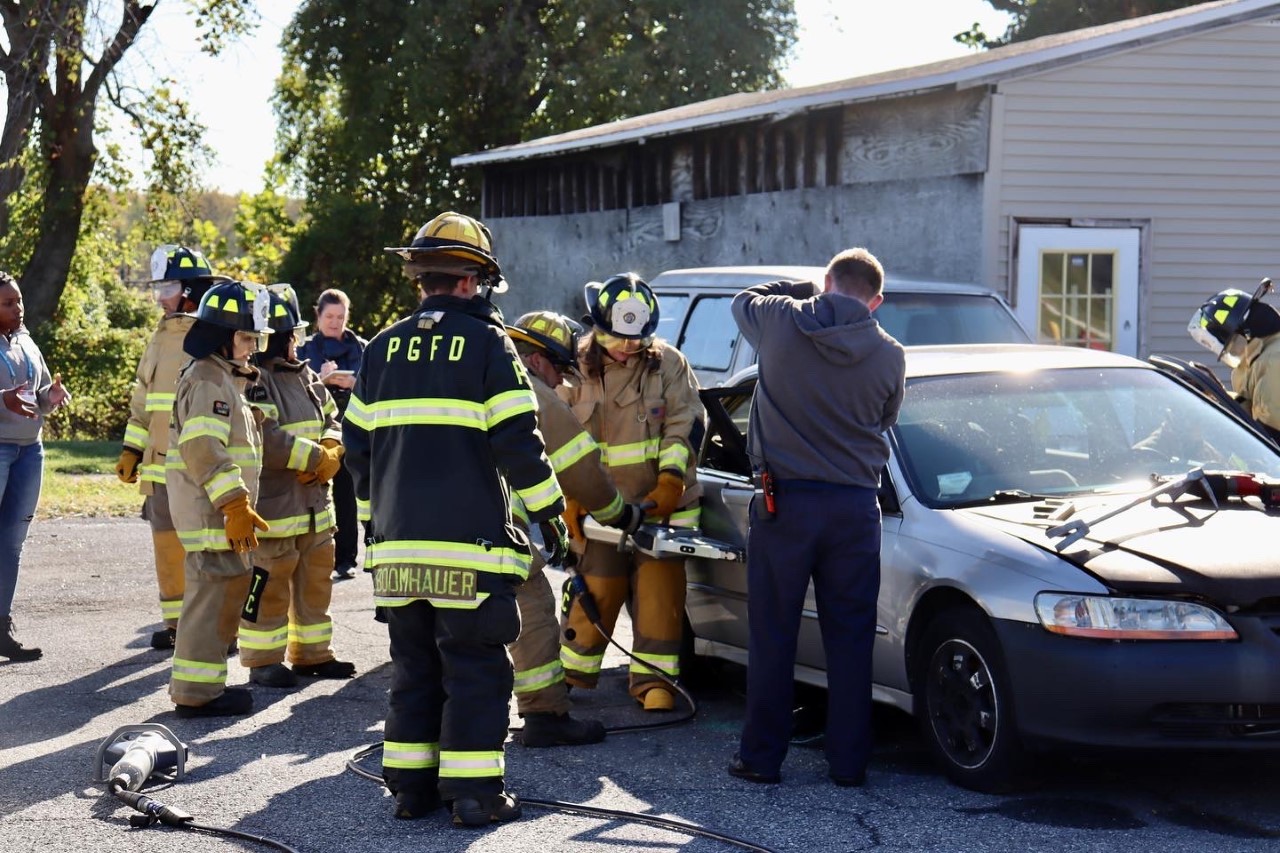 “I don’t know how you do this job every day without adequate staffing,” said Maryland State Senator Ron Watson. “This is hard work mentally and physically.”
“I don’t know how you do this job every day without adequate staffing,” said Maryland State Senator Ron Watson. “This is hard work mentally and physically.”
A vehicle extrication scenario was included as fire fighters are often the first responders to car accidents. On scene, fire fighters must use specialized equipment to cut survivors out of their crumpled vehicles. The tools not only have to fit in narrow spaces, but also must be strong enough to cut through anything.
“The equipment was simple to use, but it was not light. You have to mentally push through the discomfort to remove doors and to get accident victims out of the car,” said Rick Iacino, who works in the IAFF Production Center.
For IAFF affiliate leaders wishing to plan a FIRE OPS 101 event in their community, the IAFF has made resources available here.

